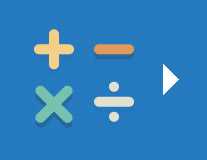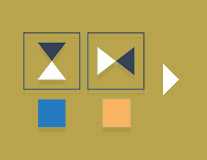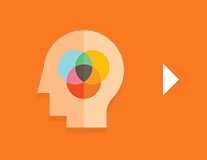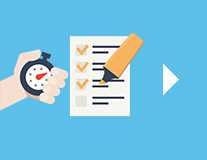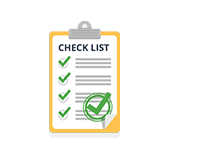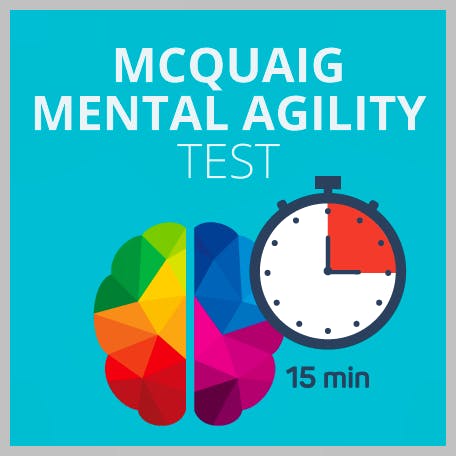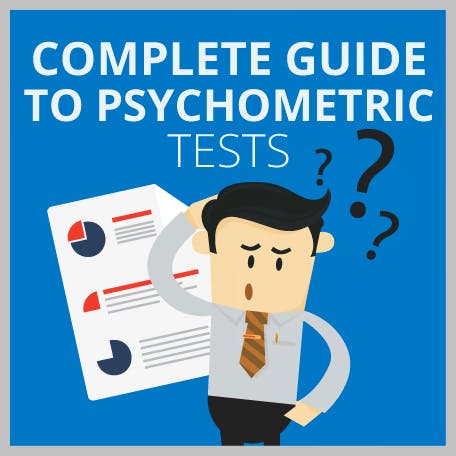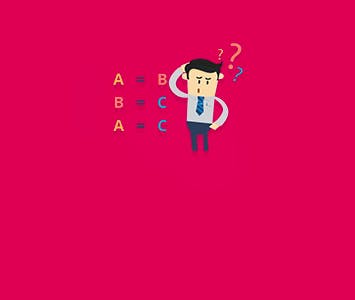Logical Reasoning Practice Test
Updated November 27, 2024

- What Is Logical Reasoning?
- What Are the Different Types of Logical Reasoning Tests?
empty
empty
empty
empty
empty
empty
empty
empty
- What are the Common Logic Tests Employers Use?
- What are the Topics Covered by a Logical Reasoning Test?
- Take a Free Practice Logical Reasoning Test
- Frequently Asked Questions
- Final Thoughts

What Is Logical Reasoning?
Logical reasoning, often referred to as logical thinking or critical thinking, is a cognitive process that involves the ability to analyze information, identify patterns, make sound judgments and draw valid conclusions.
It is a fundamental skill that plays a crucial role in problem-solving, decision-making and rational thinking.
Logical reasoning involves breaking down complex information or situations into smaller, more manageable parts. It requires examining details and understanding the relationships between various elements.
What Are the Different Types of Logical Reasoning Tests?
Logical reasoning tests come in various forms and are used by employers, educational institutions, and standardized testing organizations to assess an individual's ability to think critically and solve problems.
Here are some common types of logical reasoning tests:
Verbal Reasoning Tests
Reading Comprehension: These tests assess your ability to understand and analyze written information, make inferences, and draw conclusions from passages of text.
Critical Thinking Tests: These tests evaluate your ability to analyze and evaluate arguments, identify assumptions, and assess the validity of statements or claims.
Analogical Reasoning Tests: Analogical reasoning involves recognizing relationships between words or concepts and applying these relationships to solve problems. For example, you might be asked to complete an analogy like "A is to B as C is to what?"
Numerical Reasoning Tests
Numerical Computation: These tests assess your basic arithmetic skills, including addition, subtraction, multiplication, and division.
Numerical Sequences: These tests require you to identify patterns and relationships within number sequences and use them to predict the next number.
Data Interpretation: In these tests, you are presented with data in the form of tables, graphs, or charts, and you must interpret the information to answer questions.
Abstract Reasoning Tests
Non-Verbal Reasoning: Abstract reasoning tests evaluate your ability to recognize patterns, shapes, and relationships among visual elements. They often involve series of diagrams or figures, and you must identify the logical rules governing them.
Inductive Reasoning: Inductive reasoning tests present you with a series of visual or abstract patterns and require you to identify the underlying rules and predict the next pattern in the sequence.
Spatial Reasoning Tests
Spatial Awareness: These tests measure your ability to visualize and manipulate objects in three-dimensional space. You may be asked to complete puzzles, identify rotated or mirrored images, or solve spatial problems. Diagrammatic Reasoning Tests:
Diagram Interpretation: Diagrammatic reasoning tests use diagrams or symbols to present problems. You must analyze the diagrams to draw conclusions or identify patterns.
Syllogism and Logic Tests
Syllogisms: Syllogism tests present logical statements and ask you to determine whether a conclusion is valid based on the given premises.
Symbolic Logic: These tests involve working with formal logic symbols to evaluate logical arguments.
Inference and Deduction Tests
Inference Tests: Inference tests assess your ability to make logical deductions and draw conclusions based on a set of statements or information.
Deductive Reasoning: Deductive reasoning tests require you to apply deductive logic principles to solve problems and make decisions.
Mechanical Reasoning Tests
Mechanical Understanding: These tests evaluate your knowledge of mechanical and physical concepts, such as gears, pulleys, levers, and basic physics principles.
Cognitive Ability Tests
Cognitive Ability Tests: These assessments often include a combination of various reasoning types and are designed to measure overall cognitive abilities.
What are the Common Logic Tests Employers Use?
Employers often use a variety of logic tests to assess the cognitive abilities and problem-solving skills of job applicants. The specific logic tests used can vary depending on the nature of the job and the industry.
Here are some common logic tests that employers may use during the hiring process:
- Verbal Reasoning Tests
- Numerical Reasoning Tests
- Abstract Reasoning Tests
- Logical Deduction and Syllogism Tests
- Data Interpretation Tests
- Mechanical Reasoning Tests
- Spatial Reasoning Tests
- Diagrammatic Reasoning Tests
- Cognitive Ability Tests
This is a 10 question practice logical reasoning test.
After you have given an answer to a question, the correct answer (and a full explanation of that answer) will be given.
What are the Topics Covered by a Logical Reasoning Test?
Syllogism, statements and assumptions, logical deduction, cause and effect, statements and conclusions, logical problems.
Statements:
A lullaby is a song.
No song is prose.
Some proses are epics.
Conclusions:
I. Some proses are songs.
II. Some epics are lullabies.
III. Some songs are lullabies.
Logical reasoning tests are typically scored based on the number of correct answers. Each correct answer earns you a point, while incorrect answers may or may not result in a deduction. Some tests use a penalty for wrong answers to discourage guessing, while others do not penalize incorrect responses.
What's considered a good result on a logical reasoning test depends on the test itself, the competition, and the job or educational program you're applying for. Generally, a good result is one that places you above the average performance of other test takers.
The difficulty of a logic test can vary widely depending on the type of test, the level of complexity, and the skills required. Some logic tests are relatively easy and focus on basic reasoning skills, while others can be highly challenging, especially for roles requiring advanced problem-solving abilities.
You can find practice logic test questions online on various websites, including job search platforms, educational websites and test preparation resources.
The length of a logical reasoning test can vary. Some tests are relatively short, lasting 20-30 minutes, while others can be longer, spanning 60 minutes or more.
Practice is key to improving logical reasoning skills. Work through sample questions and practice tests to familiarize yourself with common patterns and question types.
Logical reasoning is essential because it helps individuals make informed decisions, solve problems efficiently and think critically.
Many employers use logic tests to assess the cognitive abilities of job candidates.
Logic tests may be part of standardized tests like the LSAT (Law School Admission Test), GMAT (Graduate Management Admission Test), or GRE (Graduate Record Examination).
Final Thoughts
Logical reasoning tests have become integral in the selection process for educational programs and job placements. This article explores the key aspects of logical reasoning tests, their significance and strategies to excel in them.
Logical reasoning tests are designed to assess an individual's ability to think critically, analyze complex information, and solve problems efficiently. They come in various formats, including verbal reasoning, numerical reasoning, abstract reasoning, and more.
Employers and educational institutions use these tests to gauge a candidate's cognitive abilities, which are crucial in roles that require sound decision-making and problem-solving.



